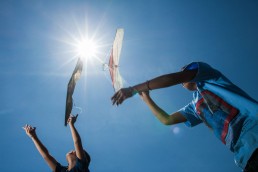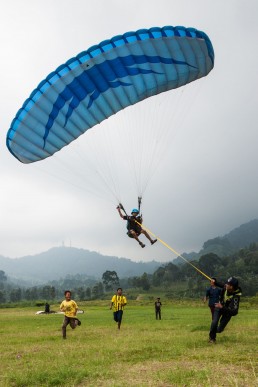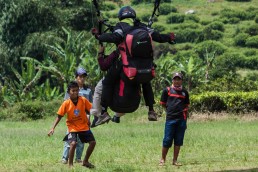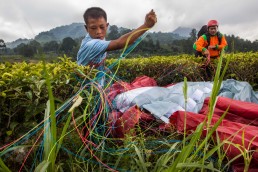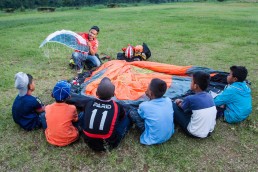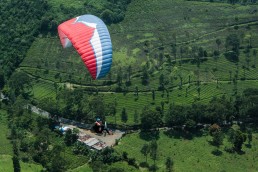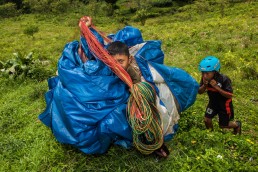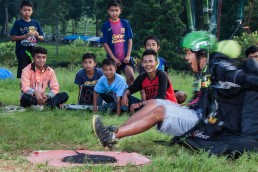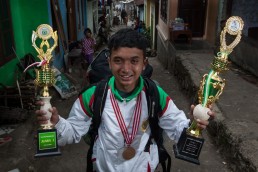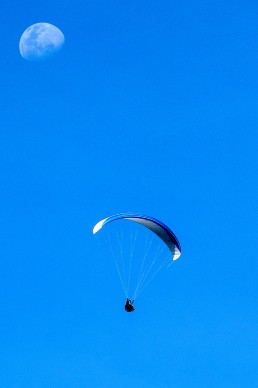The Village ‘Eagles’ Goes Around the World
THE VILLAGE ‘EAGLES’ GOES AROUND THE WORLD
Wahyu Wening, Jurnal Nasional
The sun is shining bright. In the sky, the bendy wings of paragliders appear not unlike the wings of an eagle charging against the wind, measuring the sky.
It is exactly the twists and turns of the eagle’s wings which will become the focus of children between the ages of 7 and 15. As soon as the pilot’s feet step on the landing field (1,000 mdpl) severeal children appear to have come out of the woodwork. The parachute is carefully folded and stuffed into a backpack, along with a rope, harness, and helmet to take up to Gantole Hill (1,250 mdpl), the area for take off. The children are often called ‘paraboy’—who appear in the beginning of 1990s since paragliding was introduced in Puncak.
For paraboys, each falling parachute is a gift. Every time they help fold the paragliding or hang-gliding equipments, I felt somewhat relieved. In a day, they are able to pocket some money, between IDR 20,000 and IDR 60,000.
In the sky, there are other miracles and knowledge. These pilots train the children how to fly. And this is a simple and beautiful mutualism which rests on the calling to help one another.
David Teax, a paragliding instructure, said, “Paraboys are better at understanding the techniques of flying on a paragliding, because every day they watch the pilots fly and they are willing to spare the time to practice.”
Who knew that a former paraboy would travel the world and win sports championships? One of them is Nanang Surya, now named the 17th international paragliding athlete (FAI) and a twice gold winner at SEA Games 2014.
“Paragliding is still largely ignored by the government, but Indonesia is actually fifth in the World Paragliding Ranking System FAI 2013-2014 for arriving on target,” says Gendon Subandono, a paragliding instructure.
Nanang’s story from Kampung Pansiunan is a great example of athletes’ regeration. From being a paraboy, they become paragliding and hang-gliding athletes. The nation and government have to take part in this. Sport stakeholders in the nation can learn how to build athletes without worrying about sports bureacracy up on Gantole Hill, a wide open space at the end of a tea plantation.
For me, empowerment is creating something extraordinary.

